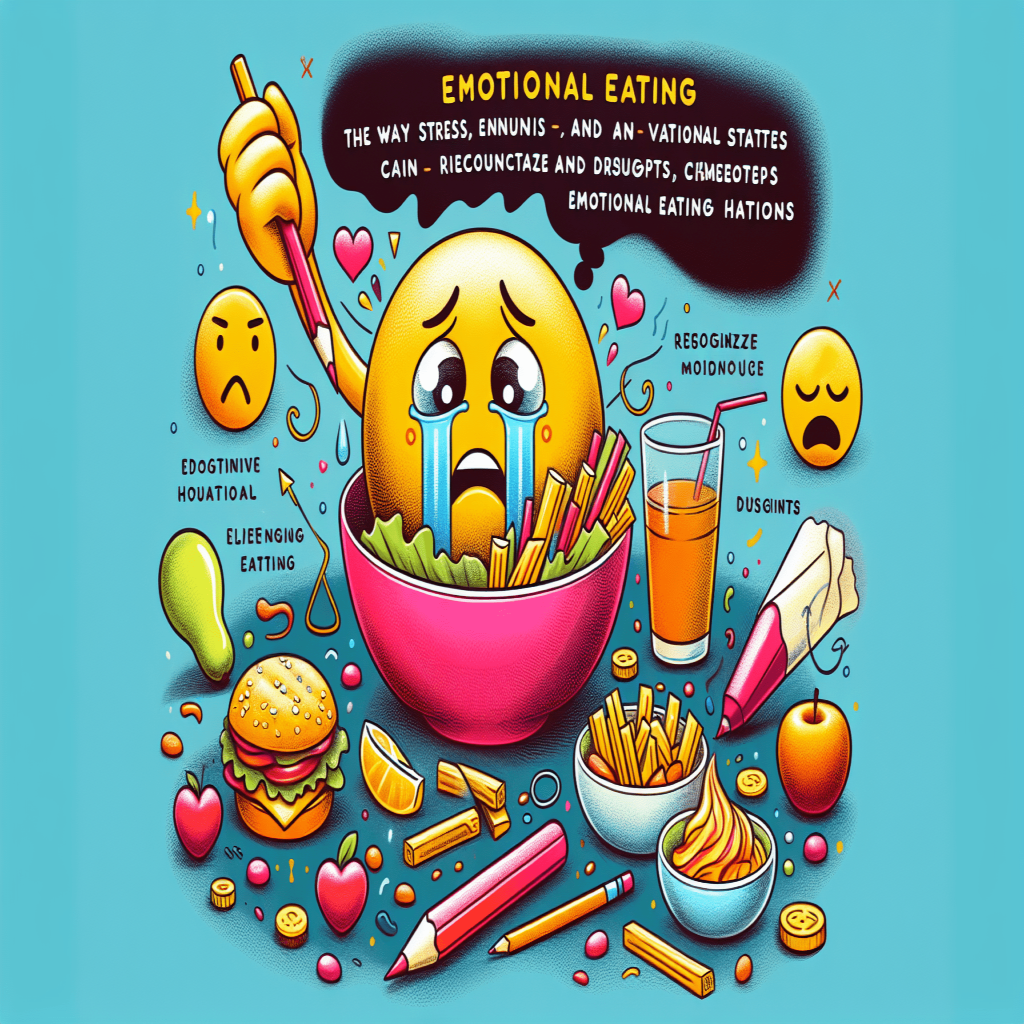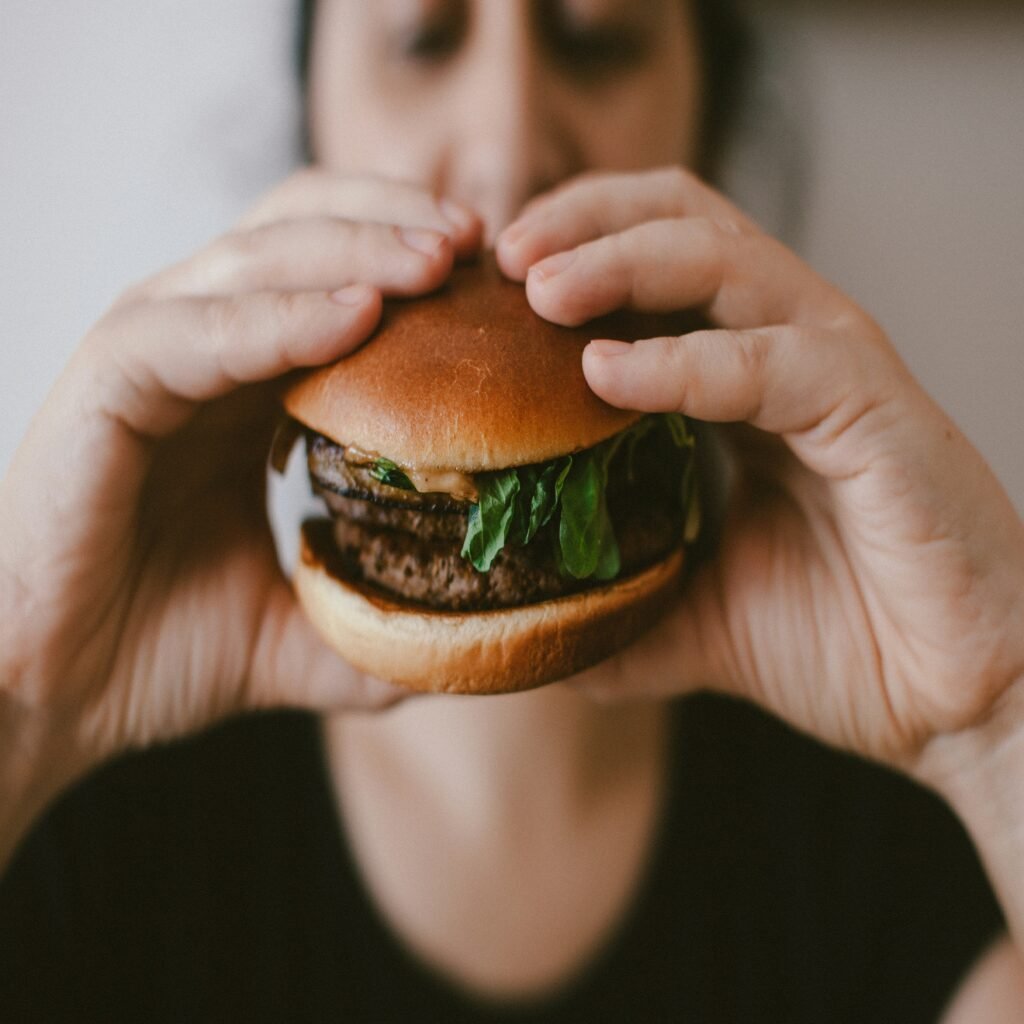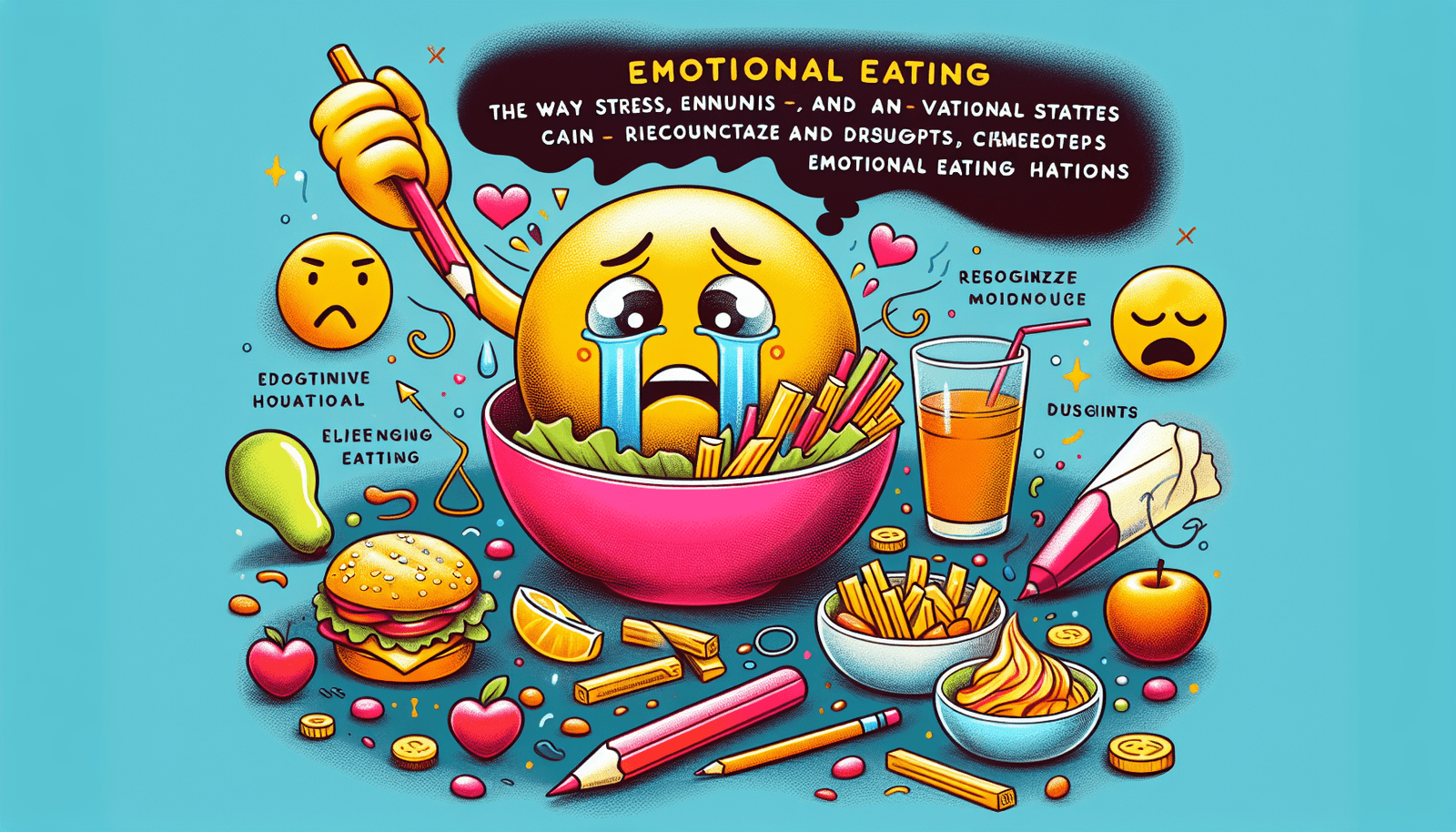Hey there! Have you ever found yourself reaching for that pint of ice cream after a bad day? Emotional eating is a common habit where food is used to cope with feelings rather than hunger. But how does this affect weight loss? Let’s dive into the connection between emotional eating and your weight loss journey.
What Is Emotional Eating And How Does It Affect Weight Loss?
Have you ever found yourself reaching for a bag of chips or a pint of ice cream when you’re feeling stressed or bored? That’s emotional eating. But what exactly is emotional eating, and how does it impact your weight loss journey? Let’s delve into the world of emotional eating and explore how it can affect your efforts to shed those extra pounds.
Understanding Emotional Eating
Emotional eating is when you turn to food as a way to cope with your emotions, rather than eating in response to physical hunger. This type of eating is often driven by feelings of stress, sadness, loneliness, or boredom. It’s a way to self-soothe and find comfort in times of emotional turmoil.
When you eat emotionally, you typically reach for high-calorie, indulgent foods that are rich in sugar, fat, and salt. These foods provide a temporary sense of pleasure and comfort, but they do little to address the underlying emotions that triggered the eating in the first place. In fact, emotional eating can often leave you feeling guilty, ashamed, and even more stressed than before.
The Emotional Eating Cycle
The emotional eating cycle is a vicious cycle that can be difficult to break. It typically goes something like this:
- Trigger: Something happens that triggers an emotional response, such as stress, sadness, or boredom.
- Craving: You experience a sudden urge to eat, often craving specific types of foods that you associate with comfort or pleasure.
- Eating: You give in to the craving and eat in response to your emotions, rather than true physical hunger.
- Temporary Relief: Eating provides a temporary sense of relief and comfort, numbing the negative emotions temporarily.
- Guilt and Shame: Afterward, you feel guilty and ashamed for succumbing to emotional eating, which can perpetuate the cycle.
Breaking free from the emotional eating cycle requires awareness, self-reflection, and healthy coping mechanisms to deal with your emotions in a more constructive way.

How Emotional Eating Affects Weight Loss
Now that we’ve explored what emotional eating is, let’s dive into how it can impact your weight loss efforts. Understanding the connection between emotional eating and weight loss is crucial for developing a successful strategy to reach your goals.
Caloric Intake
One of the most significant ways that emotional eating affects weight loss is through increased caloric intake. When you eat in response to emotions rather than physical hunger, you’re more likely to consume excess calories that your body doesn’t need. This can lead to weight gain over time, making it harder to achieve your desired weight loss goals.
Nutritional Quality
In addition to caloric intake, emotional eating often involves choosing foods that are high in sugar, fat, and salt, but low in essential nutrients. These empty calories provide little satiety and nutritional value, leaving you feeling unsatisfied and prone to overeating. A diet high in processed and unhealthy foods can hinder your weight loss efforts and impact your overall health.
Hormonal Impact
Emotional eating can also have a hormonal impact on your body, affecting your metabolism and how your body stores and burns fat. When you eat emotionally, stress hormones like cortisol are released, which can promote fat storage, especially around the midsection. This can make it harder to lose weight, particularly in stubborn areas like the belly.
Mental Health
Beyond its physical impacts, emotional eating can take a toll on your mental health and well-being. Feeling guilty, ashamed, or out of control around food can lead to negative self-talk, low self-esteem, and a cycle of emotional distress. This can create barriers to making positive changes in your diet and lifestyle that are necessary for sustainable weight loss.

Strategies to Overcome Emotional Eating
While emotional eating can pose challenges to weight loss, it is possible to break free from this cycle and develop healthier habits around food and emotions. Here are some strategies to help you overcome emotional eating and better manage your weight loss journey:
Mindful Eating
Practicing mindful eating can help you become more aware of your hunger cues, emotions, and eating behaviors. By slowing down, paying attention to your food, and savoring each bite, you can better tune in to your body’s signals and distinguish between physical hunger and emotional cravings.
Find Healthy Coping Mechanisms
Instead of turning to food to cope with your emotions, seek out healthier alternatives that can help you manage stress, sadness, or boredom in a constructive way. This could include going for a walk, practicing yoga, journaling, talking to a friend, or engaging in a hobby that brings you joy and fulfillment.
Keep a Food Diary
Keeping a food diary can help you track your eating patterns, emotions, and triggers for emotional eating. By documenting what you eat and how you feel before and after meals, you can start to identify patterns and make connections between your emotions and eating habits. This awareness can help you develop strategies to respond to emotional eating more effectively.
Build a Support System
Don’t be afraid to reach out for support from friends, family, or a therapist if you’re struggling with emotional eating. Having a strong support system can provide you with encouragement, accountability, and guidance as you work through your emotions and develop healthier coping mechanisms.
Practice Self-Compassion
Remember to be kind to yourself on your weight loss journey. Emotions like guilt and shame can keep you stuck in the cycle of emotional eating. Instead, practice self-compassion and treat yourself with the same kindness and understanding that you would offer a friend. Changing your relationship with food starts with changing your mindset and attitude towards yourself.
Seek Professional Help
If emotional eating is significantly impacting your mental health, well-being, and weight loss goals, don’t hesitate to seek professional help from a therapist, counselor, or registered dietitian. These professionals can provide you with personalized support, guidance, and strategies to help you overcome emotional eating and achieve your desired weight loss outcomes.

Conclusion
In conclusion, emotional eating is a common behavior that can have a significant impact on weight loss. By understanding what emotional eating is, how it affects weight loss, and strategies to overcome it, you can take steps to break free from this cycle and develop a healthier relationship with food and emotions. Remember that achieving sustainable weight loss is a journey that requires patience, self-awareness, and dedication. By addressing emotional eating and adopting healthier habits, you can create lasting changes that support your overall well-being and weight loss goals.




